August 10 stands as one of history’s most eventful days, witnessing the rise and fall of empires, groundbreaking discoveries, and moments that shaped our modern world across centuries of human achievement.

Politics and Government Events on August 10
1920 – Treaty of Sèvres Divides Ottoman Empire
Ottoman Sultan Mehmed VI’s representatives signed the Treaty of Sèvres, officially ending the empire’s participation in World War I. The Allied powers systematically dismantled centuries of Ottoman territorial control across the Middle East and Europe.
This treaty represented one of history’s most dramatic geopolitical reshufflings, creating new nation-states from former Ottoman territories. The agreement’s harsh terms would later fuel Turkish nationalist movements and reshape the entire regional balance of power.
1949 – Department of Defense Established
The National Security Act amendment enhanced the Secretary of Defense’s authority over all military branches, replacing the National Military Establishment. This reorganization created America’s modern unified defense structure during the early Cold War period.
The legislation centralized military command under civilian control, establishing protocols that would govern American military operations for decades. This structural change proved crucial for coordinating complex international military commitments during the nuclear age.
1988 – Japanese American Reparations Signed

President Ronald Reagan signed the Civil Liberties Act, providing $20,000 payments to Japanese Americans interned during World War II. This landmark legislation acknowledged one of America’s most shameful wartime civil rights violations.
The act represented a historic moment of governmental accountability, formally apologizing for the forced relocation of over 120,000 Americans. Reagan’s signature demonstrated America’s commitment to confronting and correcting past injustices against its own citizens.
2025 – Crown Prince Proclaimed in Brunei
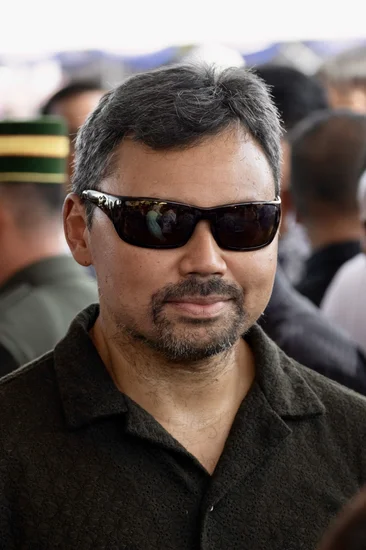
Prince Al-Muhtadee Billah received official proclamation as Brunei’s crown prince through Royal Proclamation. The ceremony established clear succession protocols for the oil-rich Southeast Asian sultanate.
This formal designation secured dynastic continuity in one of the world’s last absolute monarchies. The proclamation reinforced Brunei’s traditional governance structures while positioning the nation for future leadership transitions.
Military and Naval History on August 10
1904 – Battle of the Yellow Sea
Russian and Japanese battleship fleets clashed in the decisive Battle of the Yellow Sea during the Russo-Japanese War. This massive naval engagement demonstrated Japan’s emerging military prowess against a major European power.
The battle marked a turning point in naval warfare, showcasing modern battleship tactics and gunnery techniques. Japan’s superior naval coordination and training proved decisive in establishing their dominance over Russian Pacific forces.
1944 – Battle of Guam Concludes
American forces effectively ended the Battle of Guam, recapturing this strategic Pacific island from Japanese occupation. The victory restored American control over a crucial naval and air base in the Mariana Islands.
This triumph enabled American forces to establish forward operating bases for the final push toward Japan. The successful amphibious assault demonstrated improved American tactics and overwhelming material superiority in the Pacific theater.
1944 – Battle of Narva Ends
German forces achieved a defensive victory at the Battle of Narva, temporarily halting Soviet advances in Estonia. This tactical success provided Germany with brief respite during their overall retreat on the Eastern Front.
The battle demonstrated German military resilience despite deteriorating strategic conditions throughout 1944. However, this defensive triumph could not alter the fundamental momentum favoring Soviet forces across the Baltic region.
1961 – Operation Ranch Hand Begins
The U.S. Army launched Operation Ranch Hand, beginning the systematic spraying of defoliants across South Vietnam. This chemical warfare campaign aimed to deny Viet Cong forces food sources and jungle cover.
The operation would eventually deploy an estimated 20 million gallons of herbicides, including Agent Orange, across rural Vietnamese landscapes. This controversial tactic created lasting environmental damage and health consequences that persist decades later.
Science and Discovery Milestones on August 10
1990 – Magellan Reaches Venus
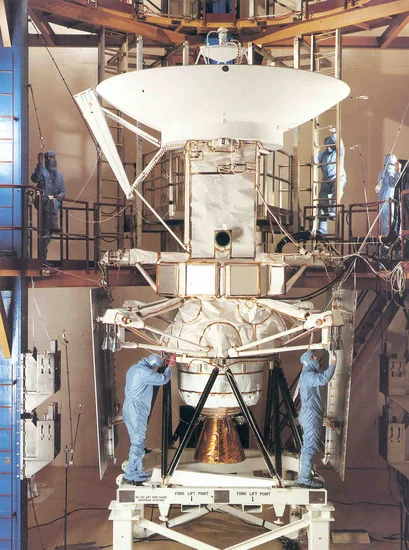
The Magellan space probe successfully reached Venus, beginning humanity’s most detailed exploration of our neighboring planet. This sophisticated spacecraft carried advanced radar mapping equipment to penetrate Venus’s thick atmospheric cloud cover.
Magellan’s mission revolutionized scientific understanding of Venus’s surface geology, revealing extensive volcanic activity and unique geological formations. The probe’s discoveries provided crucial insights into planetary formation and atmospheric evolution throughout the solar system.
1954 – Saint Lawrence Seaway Groundbreaking
The groundbreaking ceremony for the Saint Lawrence Seaway took place in Massena, New York, launching one of North America’s most ambitious infrastructure projects. This engineering marvel would connect the Great Lakes to the Atlantic Ocean for deep-water shipping.
The seaway project represented unprecedented cooperation between American and Canadian engineers, requiring complex lock systems and channel modifications. This transportation corridor would transform Great Lakes commerce and establish new trade routes between North America and global markets.
1993 – New Zealand Earthquakes Strike
Two powerful earthquakes struck New Zealand within nine hours, affecting both the North and South Islands. The 7.0 magnitude South Island quake was followed by a 6.4 magnitude North Island tremor.
These seismic events provided valuable data for earthquake researchers studying the complex geological forces affecting New Zealand. The dual earthquakes highlighted the nation’s position along active tectonic plate boundaries and advanced seismological understanding of regional fault systems.
Cultural and Arts Events on August 10
1948 – Candid Camera Television Debut

Candid Camera made its television debut after spending one year on radio as The Candid Microphone. This groundbreaking show pioneered the hidden camera format that would influence television programming for decades.
The program’s innovative approach to comedy and social observation created an entirely new television genre. Candid Camera’s success demonstrated television’s power to capture authentic human reactions and established templates for reality programming.
1976 – Society for American Baseball Research Founded

The Society for American Baseball Research established its headquarters in Cooperstown, New York, creating the premier organization for baseball historians and statisticians. This group would revolutionize sports analysis and historical research.
SABR’s founding marked the beginning of serious academic study of baseball’s cultural and statistical significance. The organization’s rigorous research methods would eventually transform how sports are analyzed and understood across all professional leagues.
1977 – Son of Sam Captured
Twenty-four-year-old postal employee David Berkowitz was arrested in Yonkers, New York, ending the Son of Sam killing spree that terrorized New York City. His capture concluded one of the most intensive manhunts in NYPD history.
Berkowitz’s arrest brought closure to a year-long reign of terror that had paralyzed the city and changed law enforcement investigative techniques. The case demonstrated the power of forensic evidence and coordinated police work in solving serial crimes.
Religious and Social Events on August 10
1969 – LaBianca Murders

Members of Charles Manson’s cult murdered Leno and Rosemary LaBianca, continuing their killing spree from the previous day’s Sharon Tate murders. These brutal crimes shocked America and symbolized the dark side of 1960s counterculture.
The murders marked a turning point in American social consciousness, ending the decade’s optimism about communal living and alternative lifestyles. The Manson Family’s actions became synonymous with the collapse of the hippie movement’s idealistic vision.
1981 – Adam Walsh Murder Case

The discovery of Adam Walsh’s remains launched a national movement for missing children’s protection and awareness. John Walsh’s tragic loss inspired the creation of America’s Most Wanted television series.
This heartbreaking case led to establishment of the National Center for Missing & Exploited Children, fundamentally changing how America addresses child safety. The Walsh family’s advocacy transformed grief into a powerful force for protecting vulnerable children nationwide.
1999 – Los Angeles Jewish Community Center Shooting
A gunman attacked the Los Angeles Jewish Community Center, highlighting rising concerns about hate crimes and domestic terrorism. The shooting traumatized the local Jewish community and sparked national discussions about religious tolerance.
This attack demonstrated the persistent threat of anti-Semitic violence in American society and the need for enhanced security at religious facilities. The incident galvanized efforts to combat hate crimes and protect minority communities from targeted violence.
Business and Economic Events on August 10
1901 – U.S. Steel Recognition Strike
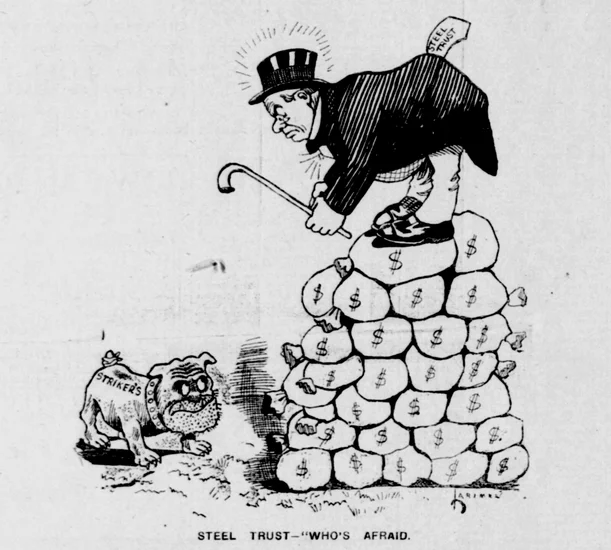
The Amalgamated Association of Iron and Steel Workers launched a major recognition strike against U.S. Steel Corporation. This labor action challenged one of America’s most powerful industrial monopolies during the Gilded Age.
The strike represented organized labor’s growing strength against corporate power and established precedents for industrial union organizing. This confrontation between workers and capital would influence American labor relations throughout the twentieth century.
1998 – Ford Pinto Litigation Catalyst

Three members of the Ulrich family died in a car accident that became central to landmark Ford Pinto litigation. This tragedy exposed corporate decisions prioritizing profits over consumer safety in automobile design.
The case established crucial legal precedents holding manufacturers accountable for known product defects and inadequate safety measures. This litigation fundamentally changed how American courts evaluate corporate responsibility and consumer protection standards.
2009 – Handlová Mining Disaster
Twenty miners died in Slovakia’s deadliest mining disaster at Handlová in the Trenčín Region. This industrial accident highlighted ongoing safety concerns in Eastern European mining operations.
The tragedy prompted comprehensive reviews of mining safety protocols and emergency response procedures throughout Slovakia. This disaster demonstrated the continued human cost of industrial accidents and the need for enhanced worker protection measures.
Transportation and Infrastructure on August 10
2003 – Okinawa Urban Monorail Opens

The Okinawa Urban Monorail began operations in Naha, Okinawa, providing the island with its first modern mass transit system. This transportation infrastructure represented significant investment in Okinawa’s civilian development.
The monorail system reduced traffic congestion and provided efficient transportation between key locations including Naha Airport and the city center. This project demonstrated Japan’s commitment to sustainable urban transportation solutions in island communities.
1966 – Heron Road Bridge Collapse
The Heron Road Bridge collapsed during construction in Ottawa, killing nine workers in Ontario’s deadliest construction accident. This tragedy exposed serious deficiencies in construction safety protocols and oversight.
The collapse prompted comprehensive reforms in Canadian construction standards and worker safety regulations. This disaster highlighted the critical importance of rigorous engineering oversight and safety inspections during major infrastructure projects.
2001 – Space Shuttle Discovery Mission
Space Shuttle Discovery launched on STS-105 to the International Space Station, carrying Expedition 3 astronauts to replace the Expedition 2 crew. This mission continued America’s crucial role in maintaining the orbital laboratory.
The successful mission demonstrated international cooperation in space exploration and the logistics of long-duration spaceflight operations. Discovery’s flight highlighted the complex coordination required for continuous human presence in space.
Sports and Recreation on August 10
1995 – Oklahoma City Bombing Indictments

Timothy McVeigh and Terry Nichols received federal indictments for the Oklahoma City bombing, while Michael Fortier accepted a plea bargain agreement. These legal proceedings began the formal prosecution of domestic terrorism.
The indictments represented a crucial step toward justice for the 168 victims killed in America’s deadliest domestic terrorist attack. The legal process would ultimately result in McVeigh’s execution and life imprisonment for Nichols.
2012 – Marikana Massacre Begins

The Marikana massacre began near Rustenburg, South Africa, when police confronted striking platinum miners. This violent confrontation would ultimately result in forty-seven deaths and expose deep social inequalities.
The tragedy highlighted persistent economic injustices in post-apartheid South Africa and the dangerous intersection of labor disputes with state violence. The massacre became a defining moment in South African labor relations and social justice movements.
2018 – Horizon Air Hijacking
Horizon Air employee Richard Russell hijacked a Bombardier Dash 8 aircraft at Seattle-Tacoma International Airport, performing unauthorized aerial maneuvers before crashing on Ketron Island. This unprecedented incident raised serious questions about aviation security protocols.
Russell’s tragic flight exposed vulnerabilities in airport security systems and highlighted mental health challenges facing aviation industry workers. The incident prompted comprehensive reviews of employee screening procedures and aircraft access controls.
Notable Births on August 10
1902 – Norma Shearer Born

Canadian-American actress Norma Shearer entered the world, destined to become one of Hollywood’s most celebrated performers. Her distinctive screen presence would define sophisticated cinema during the golden age of Hollywood.
Shearer’s career spanned the transition from silent films to talkies, earning her an Academy Award for Best Actress. Her performances in films like “The Divorcee” established her as a symbol of modern womanhood in American cinema.
1909 – Leo Fender Born
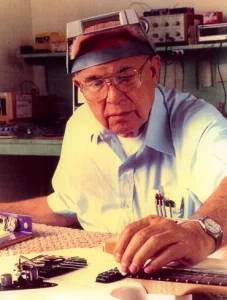
American businessman Leo Fender was born, later founding the Fender Musical Instruments Corporation. His revolutionary electric guitar designs would transform popular music and establish new sounds across multiple genres.
Fender’s innovations, including the Telecaster and Stratocaster guitars, became essential tools for rock and roll pioneers. His engineering genius created instruments that remain industry standards decades after their initial introduction.
1913 – Jorge Amado Born
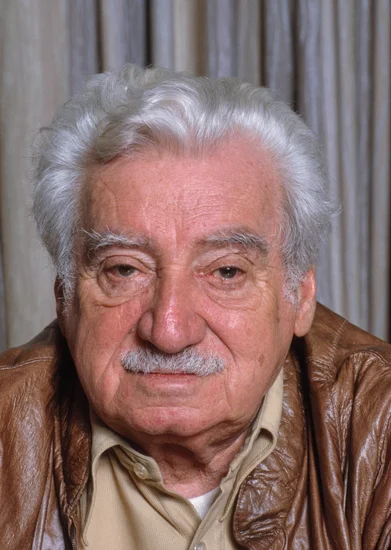
Brazilian novelist and poet Jorge Amado was born, becoming one of Latin America’s most celebrated literary figures. His vibrant storytelling captured the cultural richness and social complexities of Brazilian life.
Amado’s novels, including “Gabriela, Clove and Cinnamon,” brought Brazilian culture to international audiences and established him as a master of magical realism. His works explored themes of love, politics, and social justice with distinctive Brazilian flavor.
1947 – Ian Anderson Born

Scottish-English singer-songwriter and guitarist Ian Anderson was born, later becoming the creative force behind the progressive rock band Jethro Tull. His distinctive flute playing and theatrical stage presence defined the band’s unique sound.
Anderson’s musical innovations blended rock, folk, and classical influences, creating complex compositions that challenged conventional rock music boundaries. His leadership of Jethro Tull produced multiple platinum albums and influenced countless progressive rock musicians.
1960 – Antonio Banderas Born

Spanish actor and producer Antonio Banderas was born, destined to become one of Hollywood’s most recognizable international stars. His charismatic performances bridged Spanish and American cinema with remarkable success.
Banderas’s career evolved from Pedro Almodóvar’s films to Hollywood blockbusters, demonstrating his versatility across dramatic and action genres. His roles in “Desperado” and “The Mask of Zorro” established him as a leading man with global appeal.
1962 – Suzanne Collins Born

American author and screenwriter Suzanne Collins was born, later creating “The Hunger Games” series that would captivate millions of readers worldwide. Her dystopian fiction addressed complex themes of power, survival, and social justice.
Collins’s background in children’s television writing informed her ability to create compelling narratives for young adult audiences. Her trilogy became a cultural phenomenon, spawning successful film adaptations and influencing contemporary young adult literature.
1971 – Roy Keane Born

Irish footballer and manager Roy Keane was born, becoming one of Manchester United’s most influential players and captains. His aggressive playing style and leadership qualities defined the club’s most successful era.
Keane’s career included seven Premier League titles and a Champions League victory, establishing him as one of football’s greatest midfielders. His transition to management brought the same intensity and tactical intelligence that characterized his playing career.
Notable Deaths on August 10
1915 – Henry Moseley Dies
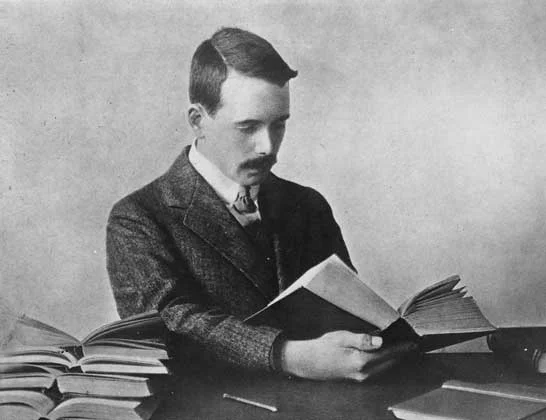
English physicist and engineer Henry Moseley died at age 27, cutting short one of science’s most promising careers. His work on X-ray spectroscopy revolutionized understanding of atomic structure and the periodic table.
Moseley’s law established the relationship between atomic number and X-ray frequency, providing crucial evidence for atomic theory. His death in World War I represented an immeasurable loss to scientific progress and atomic research.
1945 – Robert H. Goddard Dies
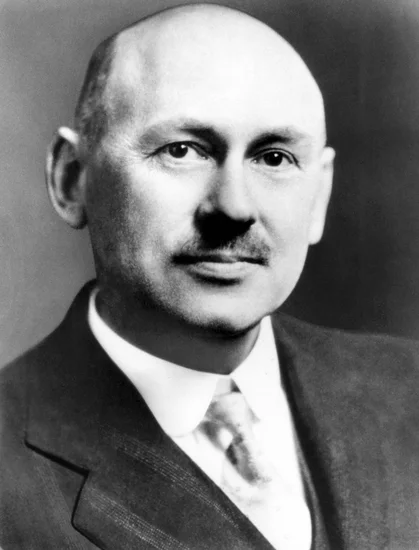
American physicist and engineer Robert H. Goddard died, ending the career of the father of modern rocketry. His pioneering work in rocket propulsion laid the foundation for space exploration and missile technology.
Goddard’s innovations in liquid-fueled rockets and guidance systems proved essential for later space programs. His visionary research established the theoretical and practical basis for humanity’s eventual journey to the moon and beyond.
1980 – Yahya Khan Dies

Pakistani general and politician Yahya Khan died, ending a controversial military career that included serving as Pakistan’s third president. His leadership during the 1971 Bangladesh Liberation War proved decisive in Pakistan’s partition.
Khan’s presidency witnessed significant political upheaval and military conflicts that reshaped South Asian geopolitics. His decisions during the Bangladesh crisis fundamentally altered the balance of power in the Indian subcontinent.
2008 – Isaac Hayes Dies
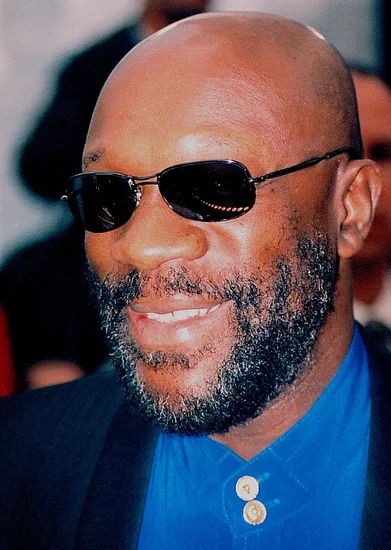
American singer-songwriter, pianist, producer, and actor Isaac Hayes died, concluding a remarkable career that spanned music, film, and television. His innovative soul music and film scoring revolutionized popular entertainment.
Hayes’s “Theme from Shaft” became an iconic soundtrack that earned him an Academy Award and established him as a pioneering force in soul music. His distinctive sound influenced countless musicians and helped define the soundtrack of American cinema.
2019 – Jeffrey Epstein Dies
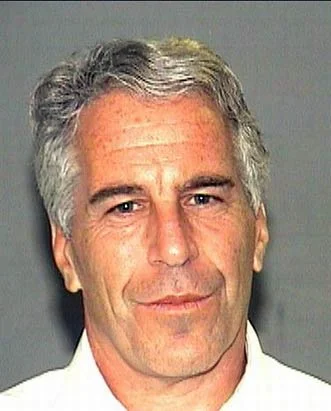
American financier Jeffrey Epstein died in federal custody while awaiting trial on sex trafficking charges. His death sparked widespread speculation and controversy about the circumstances surrounding his apparent suicide.
Epstein’s case exposed networks of powerful individuals and raised serious questions about wealth, privilege, and justice in America. His death prevented full legal proceedings that might have revealed the extent of his alleged criminal activities.
Holidays and Observances on August 10
Argentine Air Force Day
Argentina celebrates its Air Force Day, honoring the nation’s military aviation history and current aerial capabilities. This observance recognizes the crucial role of air power in national defense and military operations.
The celebration includes ceremonies at air bases across Argentina, featuring demonstrations of aircraft capabilities and tributes to fallen aviators. This day reinforces Argentina’s commitment to maintaining modern air force capabilities and honoring military aviation traditions.
World Lion Day
International conservation organizations observe World Lion Day to raise awareness about declining lion populations and habitat preservation. This global initiative highlights the urgent need for wildlife conservation efforts across Africa and Asia.
The observance promotes education about lion conservation, anti-poaching efforts, and habitat protection programs. World Lion Day encourages international cooperation in preserving these magnificent predators for future generations while supporting local communities in lion habitats.
Ecuador Independence Day
Ecuador commemorates the Declaration of Independence of Quito, proclaimed on August 10, 1809, marking the beginning of the independence movement from Spanish colonial rule. This historic declaration initiated the long struggle for South American liberation.
The celebration honors Ecuador’s independence heroes and the complex process that eventually led to full independence at the Battle of Pichincha in 1822. This national holiday reinforces Ecuadorian identity and celebrates the nation’s journey from colonial dependency to sovereign statehood.
